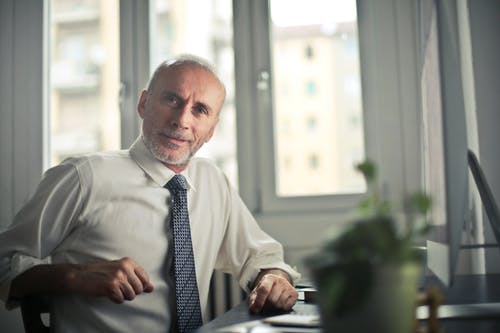The ageless workplace: let’s rebrand retirement
 by Kathleen Quinn Votaw
by Kathleen Quinn Votaw
"I'm 55-years-old … do you think they'll hire me?" asked the candidate tenuously. “Why wouldn’t they hire you? You've got the credentials,” I assured him. But I knew he had a point. Many candidates and companies burden themselves with filters that cripple their mutual opportunity. Luckily, in this case an enlightened company recognized and selected a talented, passionate man who jumped right in to help them expand into new sales channels.
Now in his 60s, he is still traveling the world for that same company, living the next chapter in his life along with his wife, who travels with him (not allowed in less open-minded companies). The employee is thriving and the business is growing exponentially. When companies and candidates open their minds to the concept of an ageless workplace, happy endings result.
Ageism, like every other form of discrimination, creates a mix of attitudes and practices that impoverish our workplaces. Or, as a recent New York Times article put it, ageism is “a dumb and destructive obsession with youth so extreme that experience has become a liability.” It’s also illegal.
Age discrimination now begins as early as age 35. By age 50, job seekers are discouraged and diminished, often rejected if they have too much experience on their resume. A successful CEO recently drove this point home to me when he said that a recruiter told him that he’d never get another leadership position if he didn’t find it before he turned fifty. Instead, he’s turned to a new “encore” chapter of his life.
I hear a range of misperceptions about the value and drawbacks of hiring people at either end of the age spectrum. The usual stereotypes of older people are that they have limited or no computer skills; are slower workers; don’t like change; are difficult to train; will miss more work from illness or injuries; and will quit because they’re overqualified, bored and ready to jump ship at any moment. Millennials, at the other end of the career curve, are perceived as having more energy, fewer health problems, greater tech savvy, a sense of entitlement, and a work-life balance philosophy that puts personal priorities ahead of the team. Where’s the truth?
In reality, older and younger workers contribute differently and importantly. Organizations on the “best” lists recognize this and make sure that their recruiting strategies include hiring both digital natives and people who could be their grandparents. Here are a few reasons why ageless workplaces work:
- Statistically, older workers, many of whom have already climbed the ladder and have nothing more to prove, are no more likely to quit than younger ones who want to move up as quickly as possible.
- Older and younger workers are absent at about the same rates; maybe older workers more for health reasons and younger ones with sick kids and school activities pulling them away.
- Older people may be slower at some tasks, but they tend to make up for it by being more accurate.
- Many older workers grew up putting work ahead of family and personal interests; many younger people put their personal lives ahead of getting the job done. They can learn a lot about work-life balance from each other.
- The wealth of knowledge and experience older people bring to an organization can fill internet downtime with lessons on interpersonal skills and the benefits of face time.
- Older workers have the confidence, perspective, and critical thinking skills to make decisions as well as create solid customer relationships—skills they can model to younger workers more tied to digital relations.
- All of the above intimidates young managers who are afraid of supervising people with more qualifications than they might have themselves, and older workers who fear their skills and experience are no longer relevant. They’re both needlessly concerned.
We’ve created a monster that limits the potential in all of us. There’s a solution, and it’s found in the ageless workplace. More leaders need to understand that diversity, in all of its forms, fosters creativity, productivity and profitability. They should welcome and value what both life experience and digital prowess add to their operations and culture. Aging workers need to realize that their life experiences and perspective have great value to organizations, and they should walk into interviews with heads held high.
Personally, my plan is to work forever—leading the charge to rebrand retirement before forever comes.
